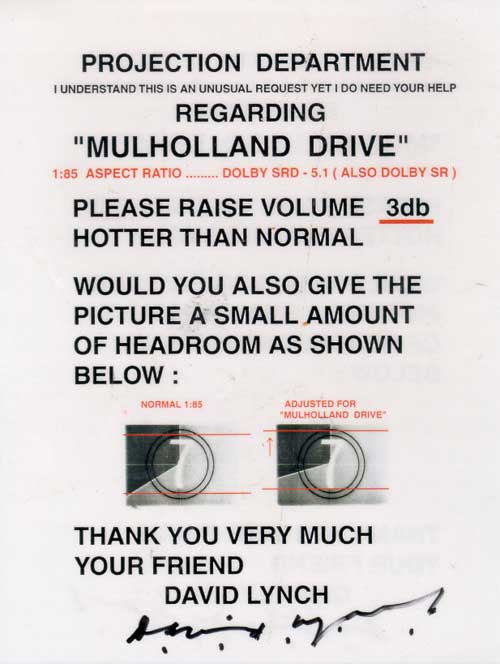dir. David Lynch
 Nance-y Boy.
Nance-y Boy.January 20, 2007 - 35mm/Museum of Modern Art
Eraserhead is a drill into my brain. Suck out some brains, mash it all up and stick on the end of a pencil. Life in a factory that makes pencils and sucks brains. It erases the pencil markings and narrative movie memories!
Eraserbed is the place Eraserhead takes me. Its woozy rumbling soundscapes and cloudy black and white dreamscapes are not the things of dream, but of sleep induction. That is, until…
Eraserbread is a bun in the oven. A giant leechy sperm, well-cooked and popped out; growing into a sickly horse fetus monster. Eraserbread is scary, boring, overcooked, overwrought, random, whiny, wide-eyed and underwhelming. David Lynch is insatiable. His immense cinematic appetite cannot simply be satisfied by this bouldery mountain of Eraserbread.
The uneven, bouldery, cavernous echo of Eraserhead is only matched by the molten, craggy, toxic gas spewing aggression of the chalkboard scratching Inland Empire. No matter what’s to be said of those two movies, no matter my slight distaste for Eraserhead and my staggering distaste for Inland Empire, David Lynch is some kind of monster when it comes to directing actors no matter the picture, and bless him for that, but somebody needs to keep him on a fucking leash, if only for a moment.
A monumental achievement for a young fellow, such as a young David Lynch, Eraserhead contains many wonderfully directed scenes of aggravating nonsense. With that said, any director so able to make any non-narrative stew shine with pure conviction of performance is a perfect match for a Hollywood picture. It almost makes Mr. Lynch the ideal director for hire, but then again his strengths are clearly guided by a wavering, yet rock solid certitude in his psyche. He’s the sidearm knuckleballer of cinema. He is quite the pitcher, no matter if he throws a ball or strike. Eraserhead is a stiff-haired sandlot Lynch practicing in his backyard, developing his style by throwing against the garage door. Inland Empire is Lynch inevitably throwing out his arm in Game 6 of the ’86 Series. Lynch, for a moment triumphing in epic stupendous disaster, becomes Bill Buckner. Whether or not this injury will be career-ending is left to be seen.
Back to that leash. The leash of a movie or television studio would bring upon Lynch’s greatest triumphs (The Elephant Man, Blue Velvet, Mulholland Dr., Twin Peaks). The 8-time Oscar nominee, The Elephant Man being the most typically narrative and oddly enough, his follow-up to Eraserhead. Like The Elephant Man, Eraserhead taps into the quite fear worthy subject of parenthood and deformity, both emotionally and physically. This physical viscera is what pushes bits of Eraserhead to greatness. The horse-headed pulpy mush of a child that the heroine, Mary (Charlotte Stewart), births is undoubtedly horrifying as well as a technical achievement. Is it a puppet? It must be a puppet, right? Whatever it is, its whine is a thing of death, and hero, Henry Spencer (Jack Nance) looks on in equal parts helpless befuddlement, adoration and anger. This look is now rightfully legendary and immortalized on merchandise.
If David Lynch can be blamed for anything specific in this world, it would not be merchandising, but the insistence film students and short-filmmakers have in feebly attempting to mimic the blown-out howl of the David Lynch emotional soundtrack. This howl is most effective when accompanied by any number of Lynch’s scores by composer Angelo Badalamenti. Eraserhead exists without his future collaborator, and the drone wears out its welcome.
The same goes for much of Eraserhead, as images repeat and reform themselves without the aid or comfort of character or precious narrative. Many of the images do stick. Lynch conjures his first of many riveting musical sequences and the image of a spectacular crystalline moon man. There are many seminal, classic bits of moviemaking here, and I will be forever grateful for the immense faith shown to Lynch post-Eraserhead, in order to make The Elephant Man and continue and build on what would become a career of legendary ups and downs, no matter how long we were forced to wait from one to the next. Do not make us wait anymore. Perhaps after Inland Empire you have another narrative masterwork in store for us, but I will not hold my breath, for that knuckleball may sink.



